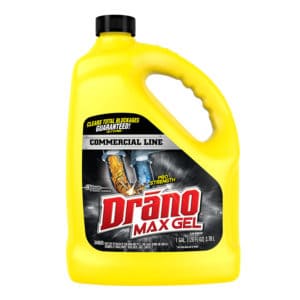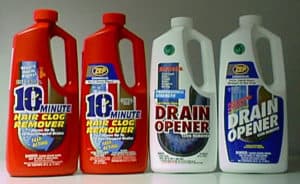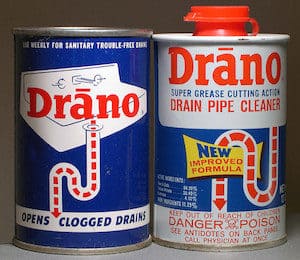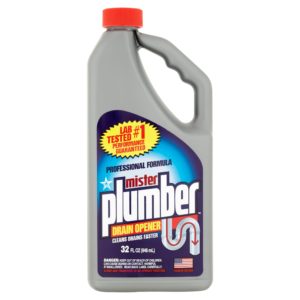Part 2: It’s Just…Drano
Published July 2019
A Guide to Common Products with Uncommon Properties
By: Nick Dryden

Part 2: It’s Just…Drano
This is part 2 of our It’s Just… series on common products we see in industry. In this series we will be focusing on the chemicals found in these products, where you might find them in your facility, and how these products should be handled for disposal. Quick Disposal.
These products are all very common and can be safely used by following the manufacturer’s instructions. However, chemical products can quickly become unusable through improper storage. After products are no longer usable, most are subject to disposal regulations and should not be poured down the drain or thrown in the trash. Improper disposal can pollute the environment, harm wildlife, and/or harm human health.

Drain Opener: Where is it Commonly Found?
Drano is the brand name of a drain opener found in many homes and custodial closets. It is used to clear clogs and blockages from sewer lines. Drain openers are commonly sold as liquids, gels, or solids. They can be purchased from most hardware stores, home-improvement stores, grocery stores, or big-box retailers like Wal-Mart and Target.

Drain Opener: What’s Makes it Dangerous?
There are generally three different types of drain openers, each utilizing a different active ingredient. The most common type of drain opener uses sodium hydroxide or potassium hydroxide as the primary active ingredient. Another type of drain opener uses sulfuric acid to clear away clogs. Finally, there are some drain openers on the market that use enzymes instead of corrosive components.
Sodium hydroxide and potassium hydroxide are both highly alkaline and very corrosive to the skin and eyes. Sulfuric acid is a strong acid capable of significant tissue damage in contact with skin. These chemicals should be handled with care and only while wearing appropriate protective equipment.

Drain Opener: How to Properly Dispose of this Chemical?
Sodium hydroxide, potassium hydroxide, and sulfuric acid based drain openers are typically regulated as hazardous wastes by the US EPA and as hazardous materials by the US DOT. Please contact our Hazardous Waste Team to put a safe plan in place for disposal of this chemical or any other chemicals you no longer want.